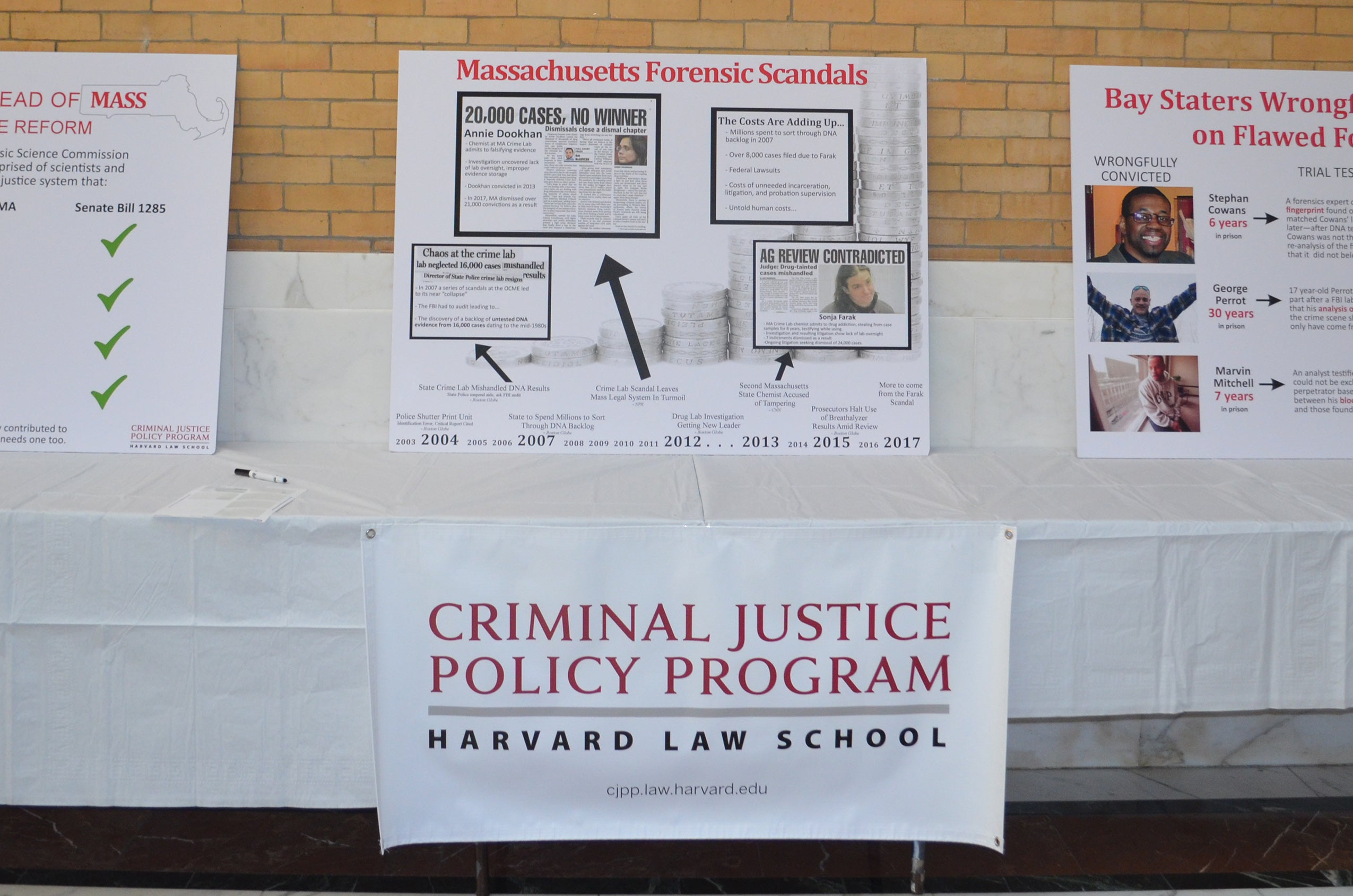Over a year ago, a group of students in Harvard Law School’s Criminal Justice Policy Program (CJPP) began working to propel forensic science reform in Massachusetts.
They worked throughout the year to write a policy brief on forensic science reform, and they researched the impact of flawed forensic techniques on wrongful convictions. Working with Filmmaker and Harvard Law School Lecturer on Law Rebecca Richman Cohen ’07, the students also created a short film highlighting the story of Victor Rosario, a Massachusetts resident wrongfully convicted based on faulty forensic evidence. Rosario, with the help of the New England Innocence Project, was recently released after serving 32 years in prison.
On October 2, the students’ work on forensic science reform culminated in a Wrongful Conviction Day event, held in the Massachusetts State House. The event focused on MA Senate Bill 1285 (introduced by Massachusetts State Senator Will Brownsberger ’83, establishing an independent commission to reform forensic science practices in Massachusetts) and MA Senate Bill 877 (introduced by Massachusetts State Senator Patricia Jehlen for updating the wrongful conviction compensation law). Victor Rosario, and Senators Brownsberger and Jehlen delivered remarks at the event, and Molly Bunke, a 3L who took the CJPP class last year and worked closely on this project, introduced the short film on Rosario’s story.
Wrongful Conviction Day attendees also heard from forensic scientists, exonerees and family members of those wrongfully convicted. Eric Carita, a forensic and DNA analyst, emphasized the need for an independent oversight committee to boost public confidence in forensic science. Beverly Rosario, the wife of Victor Rosario, highlighted the dire financial constraints of most people wrongfully convicted, and said she considers herself privileged that she had the opportunity to have a home ready by the time her husband was released from prison.
Crystal Squire spoke about her uncle Bernard Baran and the difficulties he faced following his conviction. Finally, Fred Clay, who was exonerated six weeks ago after spending 38 years in prison, spoke about being convicted when he was 17. He described the hard work he put in to prove that he was not guilty of the crime he was convicted of committing and underscored the life experiences that he has missed while behind bars: he does not know how to drive a car and he signed his first check last week.
This year’s CJPP students helped publicize CJPP’s work by creating posters to present at Wrongful Conviction Day that highlighted recent forensic scandals in Massachusetts, the impact of forensic flaws on wrongful convictions, and the urgent need for Senate Bill 1285 to become law. Through interacting with attendees, explaining their work, and hearing the speeches of exonerees, their families, senators, and forensic scientists, students were able to witness the practical and important impact that policy initiatives, like those by CJPP, can have on the community at large.
